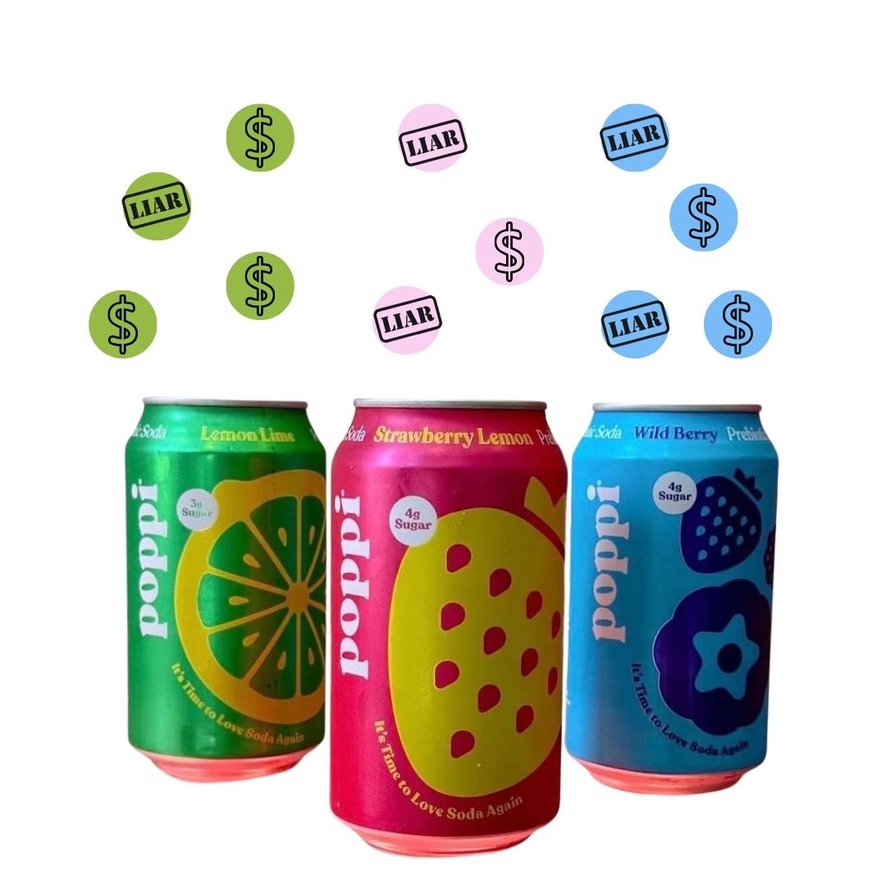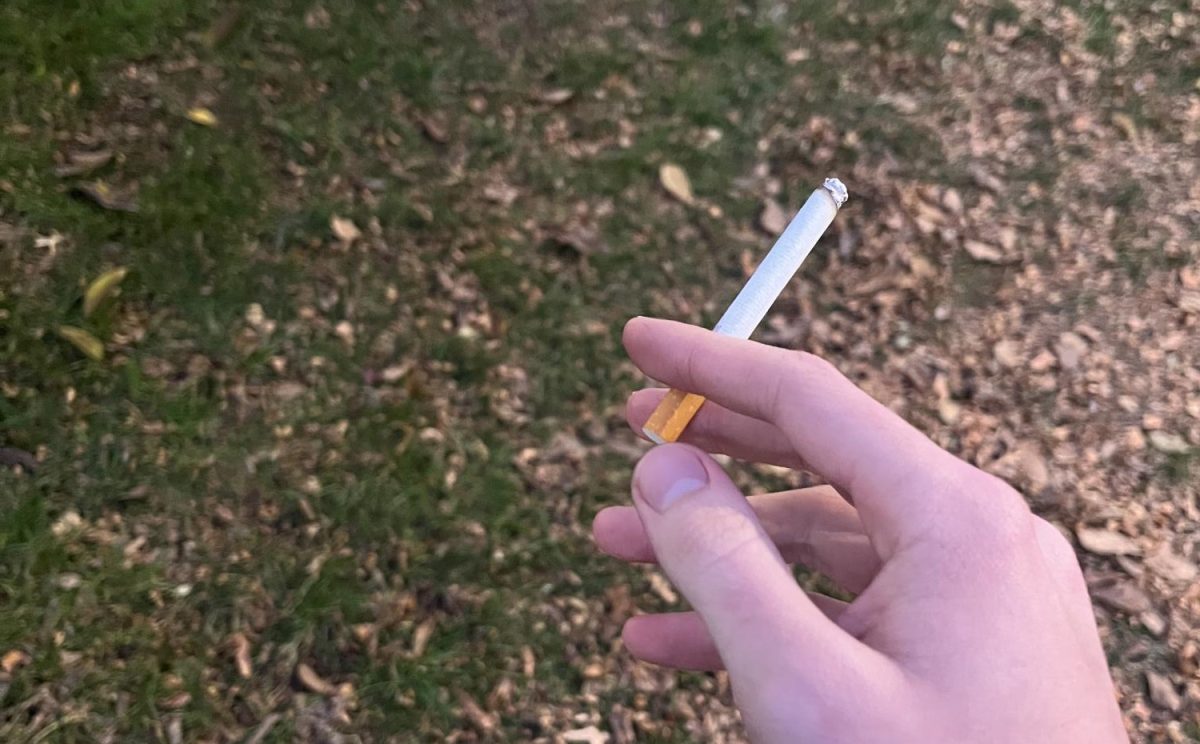Gut health is the biggest fad in the health influencer world right now, and both brands and consumers are hopping on it. Poppi, a self-proclaimed prebiotic soda brand, advertises its drinks as “gut healthy,” with the slogan “Be Gut Happy. Be Gut Healthy.” But does this have any real meaning?
One former customer doesn’t think so and is suing them for false advertising. While the brand is fiercely defending itself, some nutrition experts are saying that the amount of inulin — a prebiotic fiber that feeds good digestive bacteria — in a can of Poppi is not enough to actually benefit gut health. Given the lack of scientific defense, it seems that Poppi just wanted to appeal to the gut health crowd with popular buzzwords.
The gut health industry as a whole has exploded over the past few years. While fermented products like kombucha have been around for a long time, the multitude of pro/prebiotic sodas and vitamins that your favorite TikToker swears by are more modern inventions — and Poppi isn’t the only company under fire.
Some researchers have found that many of these big-name probiotics are not scientifically backed, and therefore have not been proven to do anything positive for your gut health. However, many people take one quick look at these labels and trust that these brands are telling the truth, even if they don’t know what these products are supposed to do.
I acknowledge that treating your gut microbiome well can be great. Science shows that good gut health can lead to good overall health, and some of these supplements and products are genuinely beneficial. However, speaking to your doctor or nutritionist before engaging in any new diet is very important. The culture of diet trends on social media often makes people feel compelled to join in on anything they hear someone say, “changed my life,” but that can be dangerous.
Like any diet, sticking to only “gut-healthy” foods is not for everyone. However, the way it is advertised by brands and influencers alike makes it seem as if everybody needs to follow this. Also, like any trending diet, if you asked many influencers what gut health actually is, they probably couldn’t answer.
With so many impressionable young people on these apps, diet trends are especially risky when they are advertised as necessary for everyone’s health. Disordered eating is an epidemic among adolescents in this country, and even if this trend is well-meaning, fixation on diet fads is a common cause for this issue. When people get too into restrictive diets, it can lead to unhealthy eating habits, especially in combination with pre-existing body image issues.
So, with all that being said, why do I still drink Poppi? First and foremost, I like the taste! I think Poppi makes good-tasting soda that, whether it’s “gut healthy” or not, is healthier than the average soda. Like many young women my age, I like to get a fun drink when I’m out and about running errands and such. Buying a $2.50 can of Poppi feels better for my body and my bank account than a $6 Starbucks Refresher.
Though I may seem like a hypocrite after I just went on about my suspicions of the gut health industry, I am honestly okay with the company as long as the soda isn’t actively harming me. This lawsuit likely won’t change my consumption habits with only the argument against gut health, as I never really believed in it anyway.
Poppi’s big mistake was fixating on gut health specifically. Advertising the drink as simply a healthy and delicious alternative to the average soda would have been more truthful, and likely still effective. While I understand the desire to hop on to the trends to maximize popularity and profits, if this lawsuit goes through, they may lose the trust of consumers who are dedicated to this gut-healthy diet.
When the trend inevitably dies out and people don’t care about gut health anymore, the company will lose sales anyway. Marketing the product as a generally healthy soda would have a better chance of immunity against the rapid trend cycle, and be a more honest and transparent way of advertising.
Molly O’Connor, FCRH ’28, is a journalism major from Weymouth, Mass.







































































































































































































